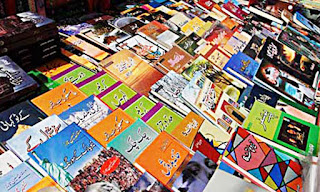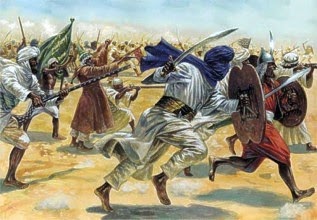DEAD LANGUAGE by Dr Mubarak ALI
Language is a repository of social and cultural values and traditions. It reflects ideas, concepts, sensibilities and the mindset of a society. Literature in a certain language indicates its richness and dynamism. If a language fails to produce any original literature and there is no addition of new vocabulary and terminology, it shows how stagnant the society is.
It is the responsibility of intellectuals to enrich a language with new ideas and create linguistic consciousness in a nation. Linguistic nationalism plays an important role in uniting scattered cultural groups and shaping them into a nation.
After the French Revolution of 1789, the revolutionary government made French the national language and forcibly wiped out other languages in order to unify all linguistic groups. Another example is of Germany which was divided into many small principalities and petty states until its intellectuals and thinkers made efforts to create a national consciousness by enriching the German language with new ideas. Successful in their endeavours, the Germans not only became united politically but also linguistically.
Simple, unintimidating words and technology might help maximise the potential of Urdu as an academic language
The German language produced rich literature and replaced the hegemony of the French which was spoken by the elite classes. The same policy was adopted by Arab intellectuals who made the Arabic language rich and powerful enough to consolidate Arab nationalism which integrates all Arabic-speaking countries.
In the subcontinent, the Bengali intellectuals transformed Bengali into an academic language. The intellectuals play an important role in developing languages by contributing new thoughts and ideas thereby providing a linguistic identity to the nation.
Another factor which improves the capacity of a language is when important books from other languages are translated. In Japan’s early period of modernisation, the works of Western intellectuals were translated into Japanese. Eventually, they produced their own original work in social as well as national sciences.
Similarly, in Iran, the translation of Western literature, history, philosophy and science was done very professionally. Also, the Iranian writers published their original contributions in every field of knowledge which made Persian a highly academic and scientific language.
Sir Syed Ahmed Khan was the first scholar who made an attempt to make Urdu prose simple and academic. His tradition was followed by his companions but his style was not continued. Abul Kalam Azad adopted a heavily ‘Arabicised’ style of writing.
In this perspective, when we study the history of Urdu we find that after ending the supremacy of the Persian language, it emerged as a language of the elite classes of North India. It was heavily dominated by Persian and Arabic words which were unfamiliar to the common man. Moreover, it became the language of poetry and religious ideas. Its prose was so complicated that it was difficult to understand the content. The writer’s emphasis was on displaying language writing skills at the cost of using unfamiliar words and terms. As a result the narrative of the early period Urdu prose does not have ideas but only the charm of colourful and poetic language.
Sir Syed Ahmed Khan was the first scholar who made an attempt to make Urdu prose simple and academic. His tradition was followed by his companions but his style was not continued. Abul Kalam Azad adopted a heavily ‘Arabicised’ style of writing.
Another effort to make Urdu an academic language was made by the Usmania University, Hyderabad, India, but it discontinued after the partition in 1947. The Usmania University as well as Anjuman-i-Tarraqi-i-Urdu managed to translate important literature from European languages into Urdu but in the absence of creative literature, the efforts remained ineffective in making Urdu academic.
When the British government founded universities in India and made English the medium of instruction, the newly-educated class adopted it as a tool to express their ideas; therefore instead of writing in Urdu, the scholars chose English as a medium. Urdu had failed to compete with English and was confined only to being the language of poetry and religion and could not expand its scope to become scientific and academic.
After the independence of Pakistan, although Urdu was declared as a national language and no efforts have been made to improve it and create academic and scientific literature in Urdu. The National Language Authority, Islamabad and the University of Karachi have published several translations of scientific and technical terminologies but being unfamiliar, they cannot be understood by readers.
According to Mehmood Mirza, there was a time in the 1950s or ’60s, when Urdu could have been made rich and fertile by translating Western literature. However, at this stage it has become nearly impossible because of the knowledge and information explosion.
In developed countries, hundreds of books are published daily on every topic, therefore it is no longer feasible perhaps to translate them all into Urdu. As a result, knowledge in Urdu language has become stagnant. In order to familiarise ourselves with new ideas and concepts, we have to read new, published material in English or European languages. Under these circumstances, Urdu has lost its opportunity to become a scientific and academic language.
sources:
- special thanks to sir nofil for focusing our radar on likes of Mubarak ALI to have better insight on historical aspects of topics.
- Published in Dawn, Sunday Magazine, May 31st, 2015




Comments
Post a Comment